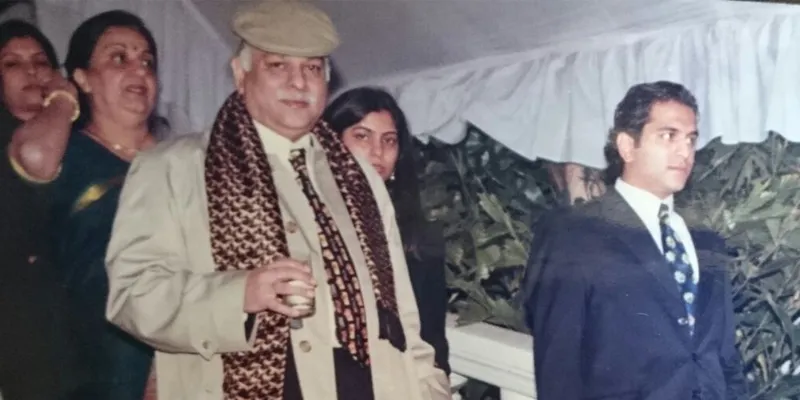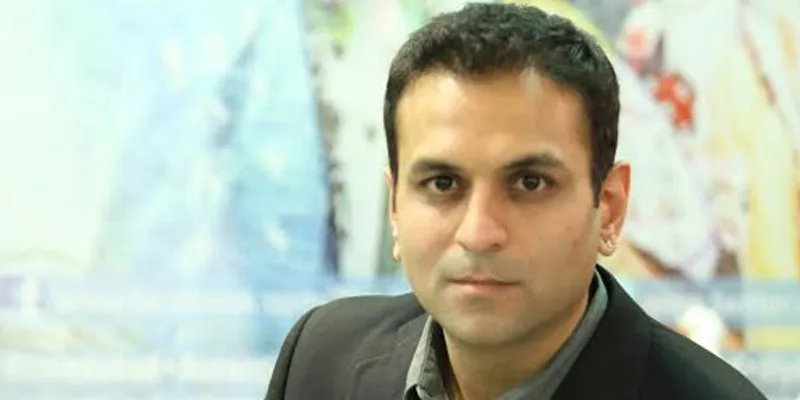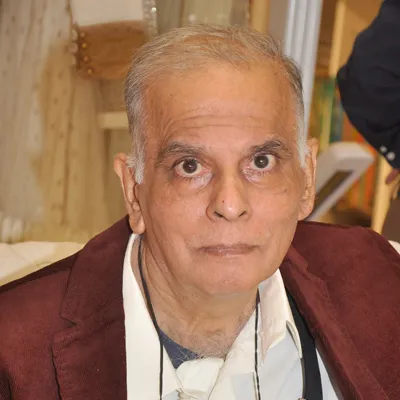From Lucknow to the world: how Rahul Jashnani transformed his father’s business into a global lifestyle ethnic brand
In the heart of Lucknow, the Modern Silk House, a 400 sq. foot retail store started in 1937 by C K Jashnani, catered to an elite clientele that included royalty and celebrities, not just in Lucknow, but across north India. The ethnic wear that the store had to offer was unique, especially the saris that were handcrafted by master artisans and sourced from different parts of India.
Absorbing C K Jashnani’s people skills and eye for fabric and fashion was his son Rahul Jashnani. Given the loyalty and love Modern Silk House enjoyed for decades, Rahul was prompted to take inspiration from what his father had built and give it a twist to match modern fashion trends. Hence, Jashn was born.
Founded in 2003, its intent was to transform the Modern Silk House into a global brand.

Modern Silk House to Jashn
Born in Mumbai, Rahul studied at HR College of Commerce and Economics. His father has been a major source of influence in his career, and given his early exposure to the industry and love for it, he decided to follow in his father’s footsteps, but with a new purpose. “The aim was to take Indian fashion to the world, showcasing the best of Indian craftsmanship and designer wear. I believe an entrepreneur should think big, take risks, be open to change and adapt with the times. That is what we did,” says the 40-year-old Managing Director of Jashn.

Today, what started decades ago in Lucknow has a new face and 80 stores across 33 cities in India and three stores in the UAE, one in Dubai and two in Abu Dhabi. The products are also available across various e-commerce websites such as Flipkart, Snapdeal, and Amazon. “The design team is always in sync with the latest trends in India and abroad,” shares Rahul. The products range from bridalwear sarees with prints and delicate embroideries, to salwar kameez sets, trendy ready-to- stitch pieces, and lehengas and kurtis.
Growth graph
Jashn has become an omni-channel brand with a presence in retail as well as e-tail platforms. In the past one year, the brand has seen a steady growth of 30 percent, out of which 19 percent has been derived from retail, which includes Jashn outlets and retail partners (large format stores). Rahul shares,
Now, as the brand turns omni-channel and gets super active on e-commerce and social media, we expect a hike in the percentage, with 35 percent growth in the coming year. This estimated figure is based on the boost in business from retail and e-tail both.
Retail is one of the largest growing sectors in the Indian economy. According to Indian Brand Equity Foundation data, the retail industry is expected to grow to $1.3 trillion by 2020, registering a CAGR of 9.7 percent between 2000 and2020. Within the retail sector, the market for ethnic brands is huge, especially brands offering women’s ethnic wear. Some of the established players include BIBA, Soch, Ethnicity, and online ventures such as Craftsvilla and Ethnic Dukaan.
Transformation and challenges
Rahul started with a team of seven and one store, and today that team comprises 600 members with more than 30 stores. When Rahul founded Jashn, the 400 sq foot store started by his father was enlarged to 6,000 sq feet. The customers Modern Silk House had catered to for decades now had a new brand, larger space and greater variety to choose from.
We had a major transformation! There are many factors involved when you plan to transform your standalone store that has a legacy of more than three decades into a brand. From communication, technology, customer service, strategy and right product pricing, everything required attention to detail, planning and execution.
Talent and funds were the primary challenges. “Eventually, the brand gained recognition through a well-laid business plan and funds flowed in,” shares Rahul. Once funds came in, business started growing, and Rahul went on a hiring spree. He managed to hire the right people, who have helped expand the business well.
Growing from one store in Lucknow to multiple stores across malls in India has been challenging too. Since the brand was new and the aim was to go global, the initial hiccups were in setting up the first stores in the metros.
When the brand was lesser known, we had difficulty finding stores in malls. Along with selecting the right location, be it in malls or high-streets, competitive product pricing and adaptation of the latest technology – all posed challenges we gradually overcame.
Key message delivery
Looking at each of these challenges as opportunities, Rahul has managed to make Jashn a popular brand. The two key things that have also helped in the transformation is the key message delivery and micro level attention to customer tastes and choices. “We go city wise, and even within the cities, we go micro level with product management,” says Rahul. This is one of the ways they make each store different from the other.

All design is done in-house; they source unique pieces directly from artisans across India. This includes artisans from places such as Varanasi, Kanchipuram and Kolkata. This has allowed for micro level changes while keeping the larger image of the brand fresh and good quality fashion intact. Rahul says,
We want to be the frontrunner when it comes to fashion and though we are not a value brand, we are still good on the pocket. And whatever we put out has to be fresh in terms of fashion while we simultaneously keep a close eye on quality.
He takes pride in the fact that Jashn is not only customer centric but also invested in its people. “ We have worked very hard to develop it this way.”
However, he has not forgotten what his father had built, a great deal of customer support and loyalty. “While the aim was to take ethnic fashion to the globe, the traditions have not been forgotten. Modern Silk House stood for quality and customer service and those two have been carried forward with Jashn too,” he emphasises.
Newer pastures
In the coming months, the company will be taking another big step. Not only are they going to be selling directly to their NRI and international customers via their own website, but they will have new styles and varieties on offer too.
While they have captured the markets in metros, Rahul is eyeing the tier II and III city markets as well. “We will be opening a lot more stores in the tier II and III cities such as Allahabad, Gorakhpur and Patna. We will also be increasing the number of stores in Bengaluru and Mumbai.”
Jashn continues its romance with the hinterland, while harnessing the old traditions and dancing to new tunes to showcase unique and fresh ethnic fashion to a larger global audience.







